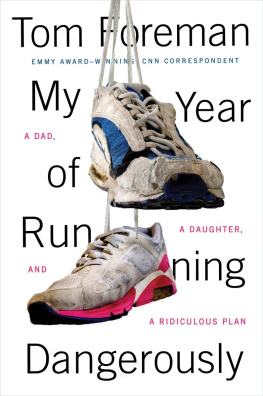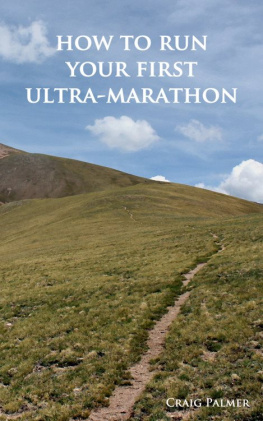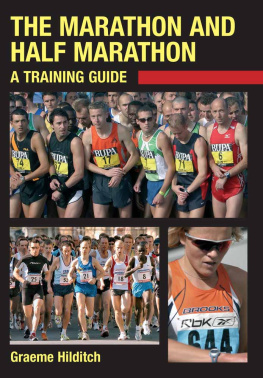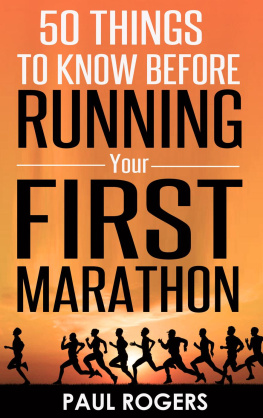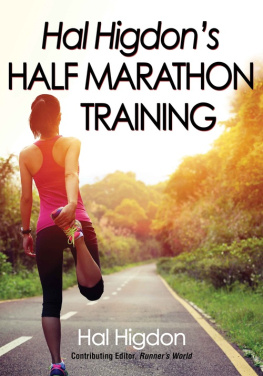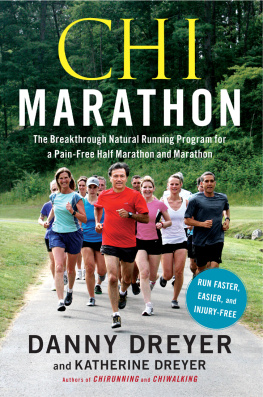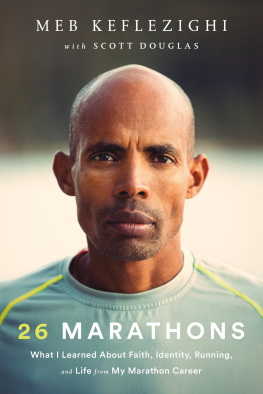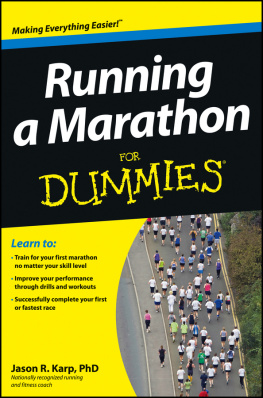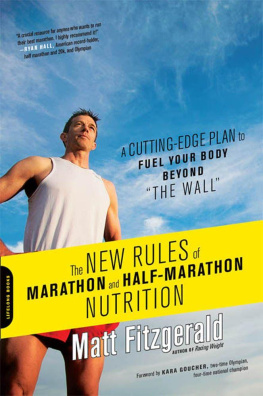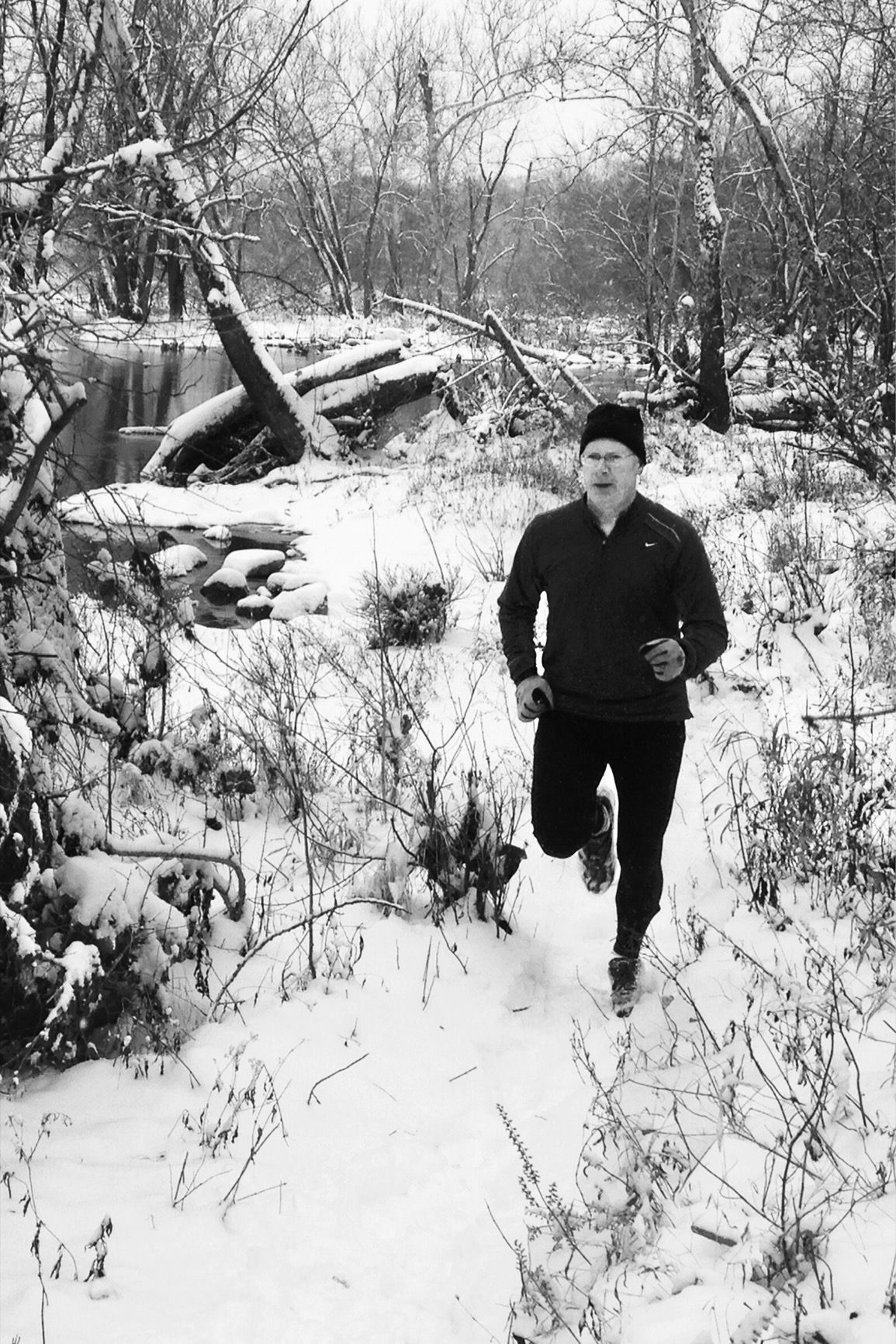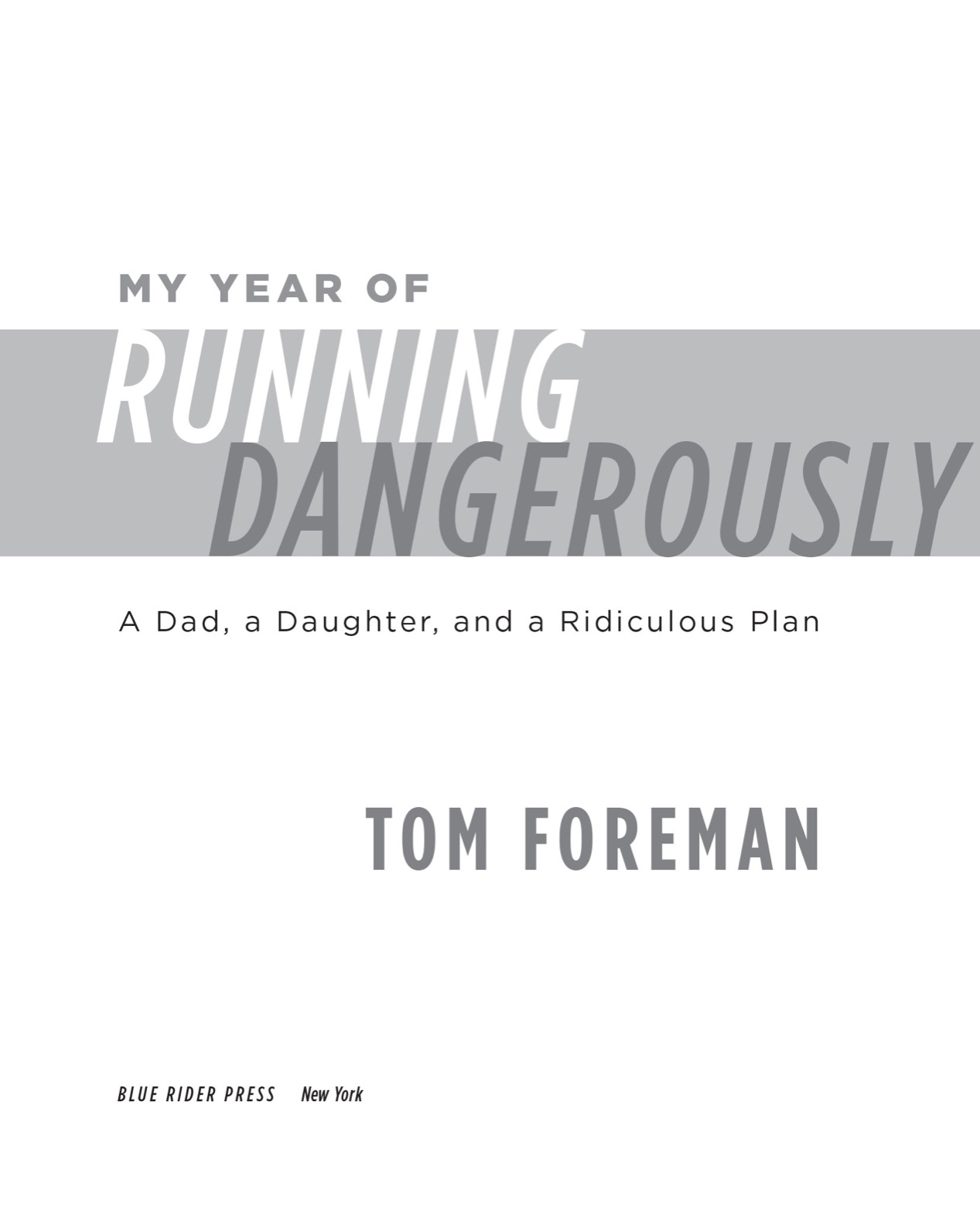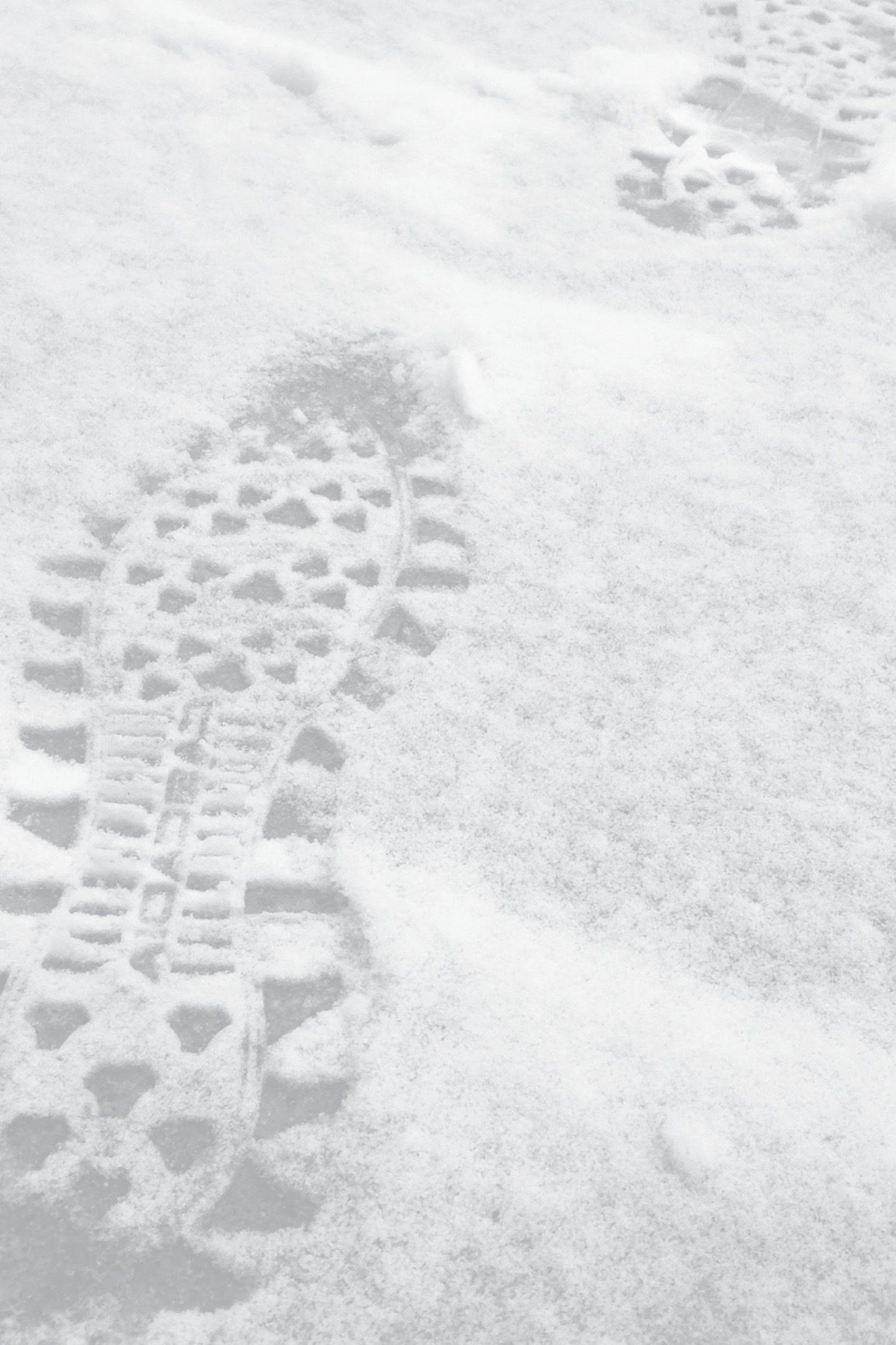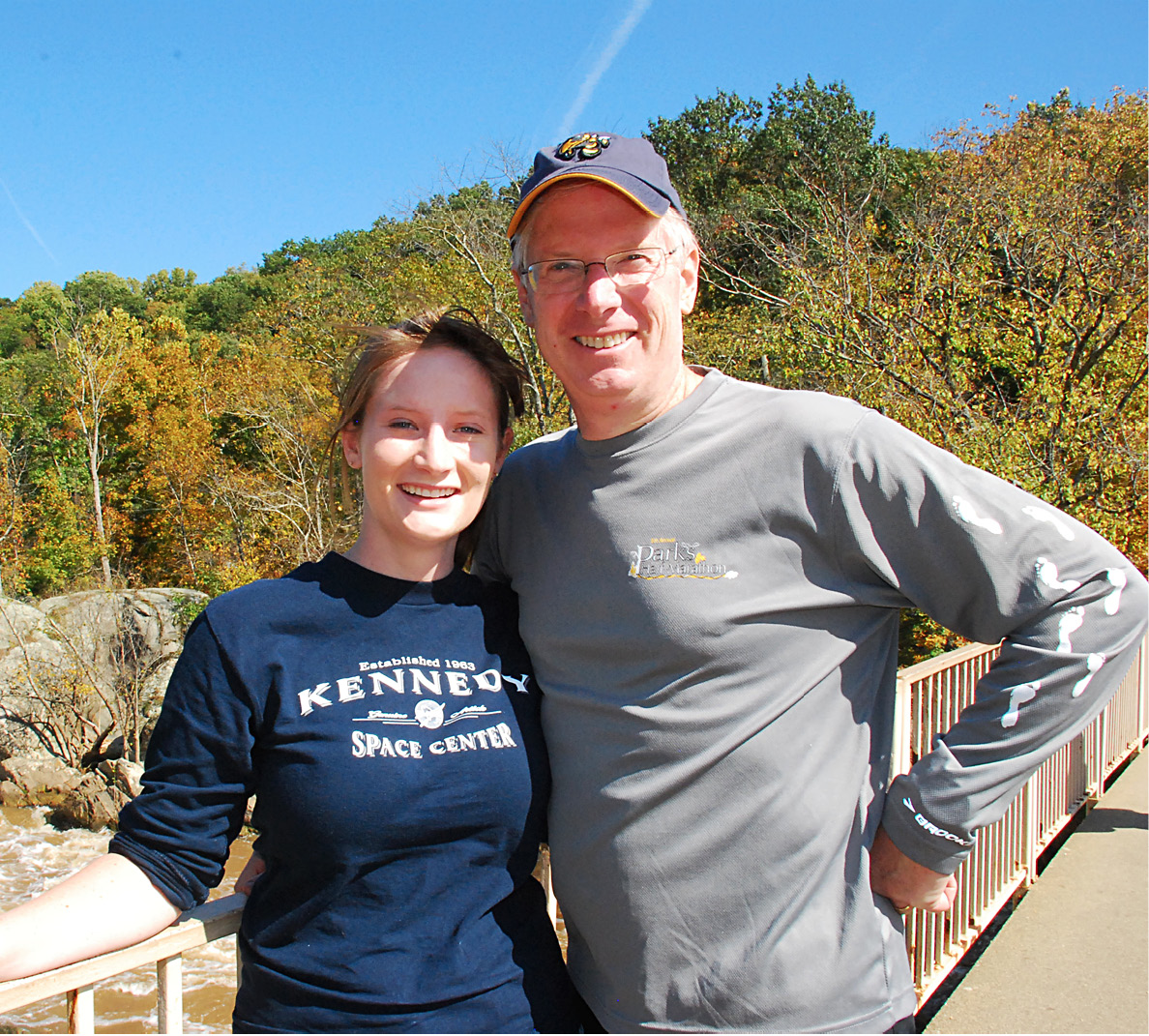
An imprint of Penguin Random House LLC
375 Hudson Street
New York, New York 10014

Copyright 2015 by Tom Foreman
Penguin supports copyright. Copyright fuels creativity, encourages diverse voices, promotes free speech, and creates a vibrant culture. Thank you for buying an authorized edition of this book and for complying with copyright laws by not reproducing, scanning, or distributing any part of it in any form without permission. You are supporting writers and allowing Penguin to continue to publish books for every reader.
Blue Rider Press is a registered trademark and its colophon is a trademark of Penguin Random House LLC
Library of Congress Cataloging-in-Publication Data
Foreman, Tom.
My year of running dangerously : a dad, a daughter, and a ridiculous plan / Tom Foreman.
p. cm.
ISBN 978-0-698-19837-1
1. Foreman, Tom. 2. Foreman, TomFamily. 3. Marathon runningUnited States. 4. Fathers and daughtersUnited States. 5. Marathon runningPsychological aspects. 6. AgingPsychological aspects. 7. Long-distance runnersUnited StatesBiography. 8. Middle-aged menUnited StatesBiography. 9. JournalistsUnited StatesBiography. I. Title.
GV1065.2.F67 2015 2015017237
796.42092dc23
[B]
Penguin is committed to publishing works of quality and integrity. In that spirit, we are proud to offer this book to our readers; however, the story, the experiences, and the words are the authors alone.
The names of some runners in this book have been invented because conversations with them occurred in the course of races and their actual identities are lost in the limited brain cells of the author.
Version_1
For Linda, Ronnie, and Alithe Foreman Family Running Club
PROLOGUE
A s I charge over the hilltop, the trail is a muddy chute flanked by scrub and snow. Powering down the middle with quick strides, I windmill my arms for balance. I head for the flat, where Ill hit dry earth and blast away. Fifty steps left. Twenty. Ten. Calamity.
My left foot shoots sideways. I grab for a branch, miss, and keep spinning with the grace of a hog tossed from a train. The back of my head slams into a tree trunk, and I go down. My vision racks to zero, then screams back into focus. My ears ring and my shoulder goes numb. Cold mud is plastered up one side of my body, and something hot is running down my neck. I press a white glove against my skull and pull it back red.
I have three choices. Remain seated on this remote trail waiting for someone to come along, which might take thirty minutes or three hours. Cut through the woods to the nearest road, and accept that if I go down in transit, I wont be found until next spring. Probably by German tourists. Was fr ein Tier war das? (What kind of animal was that?) Or...
I stagger up, jam my hand against the wound, and keep running. Forty-five minutes later, I burst into my home in suburban Washington, D.C., in a shower of snow, ice, and mud. My wife, Linda, leads me to the bathroom, checks my pupils for a concussion, and begins washing away the gore. My gloves sit on the sink like evidence in a murder trial.
You dont need stitches, she says, slathering on antibiotic cream and pushing my hair back into place.
I look at her in the mirror and grin. Thanks, Dr. Grey.
She answers with a word. Idiot.
ONE
M y descent into the madness of ultrarunning began with a Thanksgiving conversation. The dishes had long been cleared, wed watched some TV, and I had returned to the kitchen when my eighteen-year-old daughter, Ronnie, asked that question every father dreads.
How would you feel about running a marathon with me?
My heart jumped. My pulse raced. A bite of leftover stuffing fell from my fork. As a veteran journalist who has been to war zones, riots, and natural disasters, who has covered serial killers, slipped away from knife-wielding lunatics, and ducked beneath gunfire, I never imagined I would face the most frightening moment of my life in this fashion. And yet there I was, staring into her big blue eyes, wondering how I could escape.
Id been a marathoner back in my twenties, but now I was knockingmake that poundingon the door of fifty-one. My knees made strange sounds when I climbed out of bed. You could play Foggy Mountain Breakdown on the muscles in my lower back. I had the flexibility of a stepladder, and my weakness for cinnamon rolls had convinced me that covering any sizable number of miles would forevermore involve a combustion engine or a plane ticket.
I squeezed into a sweatshirt and jogged down the road now and then, and I looked fit, but I could feel the toll of too many years of business travel, late nights of work, and bad mealtime choices.
More fried shrimp, sir?
Absolutely! And can I get some extra tartar sauce?
I remembered two things about marathoning: Training took a lot of time, and I never trained enough. Consequently, my races were exercises in absurdity. Id start out fast, fall apart in the middle, and by the end be hobbling like some newly discovered Dickens character named Chuffy Dimblewit.
By contrast, Ronnie was young and strong and had embraced the keys to lifelong health: good eating habits, a reasonable amount of sleep, and a work-play balance that allowed her to excel. Her muscles rippled with the power and grace that teenagers take for granted. I wasnt sure what had possessed Ronnie to propose such an idea, and I triangulated a fast end to the conversation.
You know, honey, training for such a long race can be very hard.
She looked at me and said nothing.
And remember, it is your first year in college. What are you studying? Juggling?
Aerospace engineering.
That sounds like a lot of work. Physically, this would be very tough. Id hate to see you get hurt. You know some women wind up sterile!
Nothing. I sighed the way a man might when the judge asks if he understands the charges.
Okay. When do we start?
I took cold comfort from the knowledge that over several decades the image of marathoners has morphed from that of insane masochists who spend far too much time discussing black toenails to borderline normal. If you tell people you have completed a marathon, they are now more likely to greet you with Congratulations! than Dear God, why? Certainly, for this metamorphosis to have happened, someone must have found an easier way to cover such a daunting distance.
The numbers suggest so. Each year about a half-million Americans tie on their shoes, rub Vaseline into their crotches, and complete one of more than 1,100 of these annual asphalt expeditions.

